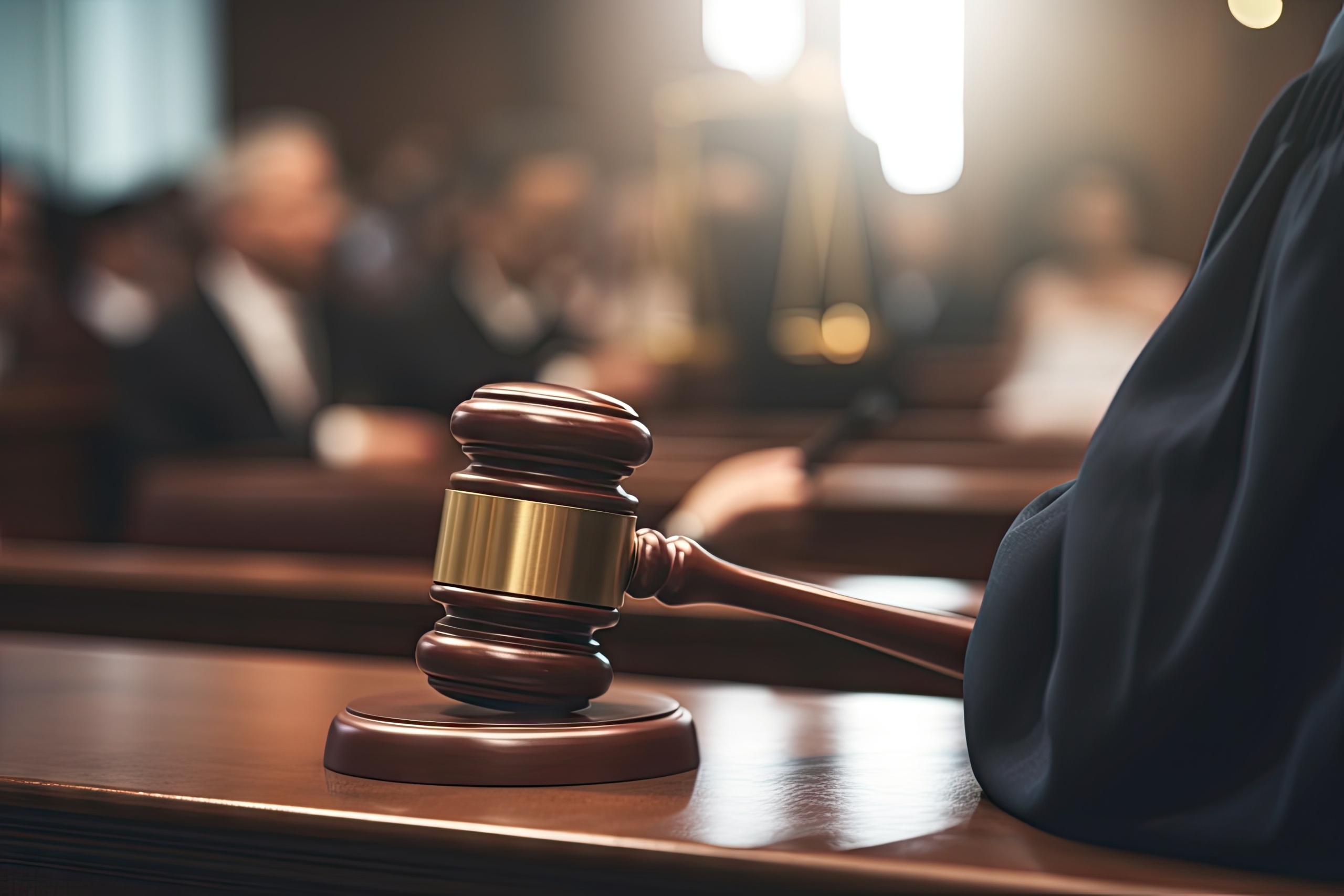How a Judgment Enforcement Lawyer NY Can Help You Take Back Control
Losing a court case is stressful; especially when there’s a monetary judgment against you. That court order gives creditors and debt collectors much more powerful tools to extract money from you. Some of them include wage garnishment, bank account freezes, or even a lien against your home.
In New York, judgments can impact your credit, finances, and even your ability to refinance or sell property. Many people feel hopeless after losing a debt collection lawsuit, but you still have options. With the right steps and guidance from a judgment enforcement lawyer NY, you may be able to reduce or overturn the impact.
Let’s talk about what a judgment is, why it matters, and the practical steps you can take to fight back. It also highlights how legal counsel can help you navigate deadlines, negotiate settlements, and protect your assets under New York law.
Understanding Judgments in New York: How They Impact Your Finances
A judgment is the official result of a debt collection lawsuit. It means a court has ruled that you owe money, and the creditor now has legal rights to enforce repayment. The judgment grants them a completely different plane of leverage than mere collection calls. For a deeper explanation, see our guide on what judgment enforcement is and how it works.
In New York, a judgment allows creditors to garnish your wages, seize money from your bank accounts, or place liens on your property. These actions can make day-to-day life more stressful and financially draining.
Judgments can also appear on your credit report, damaging your score and limiting your ability to get loans or affordable interest rates. Because they remain enforceable for many years in New York, it’s never a good idea to ignore them.
The bottom line is that judgments change the playing field. They give creditors stronger rights, but they don’t end your ability to fight back. Acting quickly is key.
Immediate Actions to Take When Facing a Court Judgment in NY
What should you do first if there’s a judgment against you in New York?
- Respond to the lawsuit immediately to avoid default.
- Review court papers for accuracy and proper service.
- Act quickly since deadlines for filing are short.
The most important step is to respond. Many people make the mistake of ignoring lawsuits or judgment notices. That’ll always make things worse. By failing to act, you risk garnishment or more court fees.
Review all court documents carefully. Ask yourself: Was the judgment entered properly? Were you properly notified of the lawsuit? Are the amounts accurate? Sometimes errors in paperwork can be enough to challenge the validity.
Also, check the age of the debt. If the debt was already too old to be collected (known as time-barred), that could be a defense. Debt collectors must prove they have the legal right to sue, the debt is yours, and the amount is correct. You can explore additional strategies for judgment enforcement defense to strengthen your case.
If you don’t respond, the court’s decision stands, and the collector can move forward. This could mean losing part of your paycheck, seeing your bank account frozen, or having a lien placed on your property.
Proven Ways to Challenge or Reduce a Judgment in New York
Vacating a Judgment in NY: When and How It Works
How to vacate a default judgment in NY:
- File an Order to Show Cause under CPLR 5015.
- Prove improper service or excusable default.
- Submit documentation and act within the court’s deadline.
If you were never properly served with the lawsuit or if there were errors in the process, you can ask the court to vacate the judgment. This essentially means erasing the judgment and reopening the case.
Improper service is one of the most common grounds in New York. For example, if the lawsuit papers were delivered to the wrong address, you may have a strong defense. A judgment defense lawyer in NY can file the motion and argue your case. For broader context, see our article on navigating judgment enforcement law in New Jersey and New York.
Settling a Judgment: Lowering What You Owe Through Negotiation
Not every judgment has to go through years of enforcement. Litigation gets quite expensive. Many creditors often prefer negotiating a voluntary plan to enforce a judgment instead of paying insane legal fees for extended lawsuits.
You may be able to settle for a lower lump sum or agree to a structured payment plan. Always get agreements in writing to avoid future disputes. Having a lawyer handle negotiations can prevent aggressive collection tactics.
Appealing a Judgment in New York Courts: What You Need to Know
Can you appeal a judgment in New York?
- Yes, but only if there was a legal or procedural error.
- Appeals must be filed within strict time limits.
- An attorney can determine if appeal is the best path.
If you believe the court made a mistake in applying the law or reviewing evidence, you may be able to appeal. Appeals are complex and time-sensitive, so acting quickly with legal support is essential.
While an appeal can correct an unfair ruling, it also involves extra costs. A judgment enforcement lawyer NY can check whether an appeal is worth pursuing or if another route is more effective.
Using Exemptions to Protect Your Wages and Assets in NY
What are NY judgment exemptions for wages and assets?
- Part of your wages is exempt under state law.
- Retirement accounts and certain bank balances are protected.
- File an exemption claim to prevent seizure of protected funds.
New York law provides exemptions that protect certain income and property from judgment enforcement. Examples include a part of your wages, specific retirement accounts, or a minimum balance in your bank account. Learn more in our resource on what garnishment is and how it works.
By filing exemption claims, you can stop a creditor from taking protected funds. This doesn’t erase the judgment, but it can protect your most vital assets. A lawyer can ensure your exemption claim is properly filed and recognized.
Bankruptcy as a Last Resort: How It Stops Judgment Enforcement
Does bankruptcy stop judgment enforcement in NY?
- Yes, Chapter 7 or Chapter 13 triggers an automatic (temporary) stay.
- Creditors must halt garnishments and collection efforts.
- Bankruptcy may discharge certain debts entirely.
In cases where debt is overwhelming, bankruptcy may be the best option. Filing for Chapter 7 or Chapter 13 can discharge certain debts and immediately stop collection actions. Keep in mind that the automatic stay is only temporary, though. But it can give you enough breathing room to find your footing and the best path forward.
Bankruptcy has serious credit consequences, but it can also provide a fresh start. Speaking with a judgment enforcement lawyer in NY can help you weigh whether this step makes sense for your situation.
Why Legal Help Matters When Fighting a Judgment in New York
Facing a judgment without guidance is risky. A judgment enforcement lawyer NY can:
- Review the case to check whether the judgment was validly entered.
- File court motions to vacate or appeal.
- Negotiate settlements with creditors.
- Protect wages and assets by filing exemption claims.
- Advise on bankruptcy if it becomes necessary.
Legal representation makes a huge difference in timing, paperwork, and outcomes. Many deadlines are strict, and missing them can mean losing your chance to fight back.
What Every New Yorker Should Remember About Judgments
Judgments can last up to 20 years in New York, and they’re renewable. Ignoring them can lead to wage garnishment, bank freezes, and liens on property.
The good news is that exemptions and motions are available, but they must be filed within the proper timeframe. Acting quickly with professional guidance gives you the best chance of protecting your finances. If your case involves multiple jurisdictions, see our breakdown on collecting on an out-of-state judgment in NYC.
Comparing Your Judgment Defense Strategies Side by Side
| Option | When It Applies | Pros | Cons |
| Vacate Judgment | Improper service or error | Removes judgment entirely | Strict filing deadlines |
| Settlement | Creditor willing to negotiate | Avoids long enforcement | Still costs money |
| Appeal | Court made a legal error | Corrects unfair rulings | Costly, complex |
| Exemptions | NY-protected assets | Safeguards essentials | Doesn’t erase debt |
| Bankruptcy | Overwhelming debt | Stops all collection | Severe credit impact |
Practical Next Steps for Anyone Facing a Judgment in NY
What should you do today if there’s a judgment against you in New York?
- Collect all court documents and notices.
- Verify whether service was proper and the debt valid.
- Contact a judgment enforcement lawyer NY for guidance.
If you’ve recently learned about a judgment, start by gathering paperwork, checking validity, and reaching out for legal help. Acting quickly is the difference between staying afloat or drowning in debts and legal fees.
Partnering with a Judgment Enforcement Lawyer NY to Protect Your Future
A judgment doesn’t mean the end of the road. Whether through vacating, appealing, negotiating, or filing exemptions, there are ways to fight back. Even bankruptcy may be an option when debt becomes overwhelming.
The key is to act quickly and seek the right support. With the help of a judgment enforcement lawyer NY, you can understand your options, protect your assets, and build a plan that minimizes the impact of a court judgment.
Don’t let a judgment dictate your financial future—take steps today to fight it.




